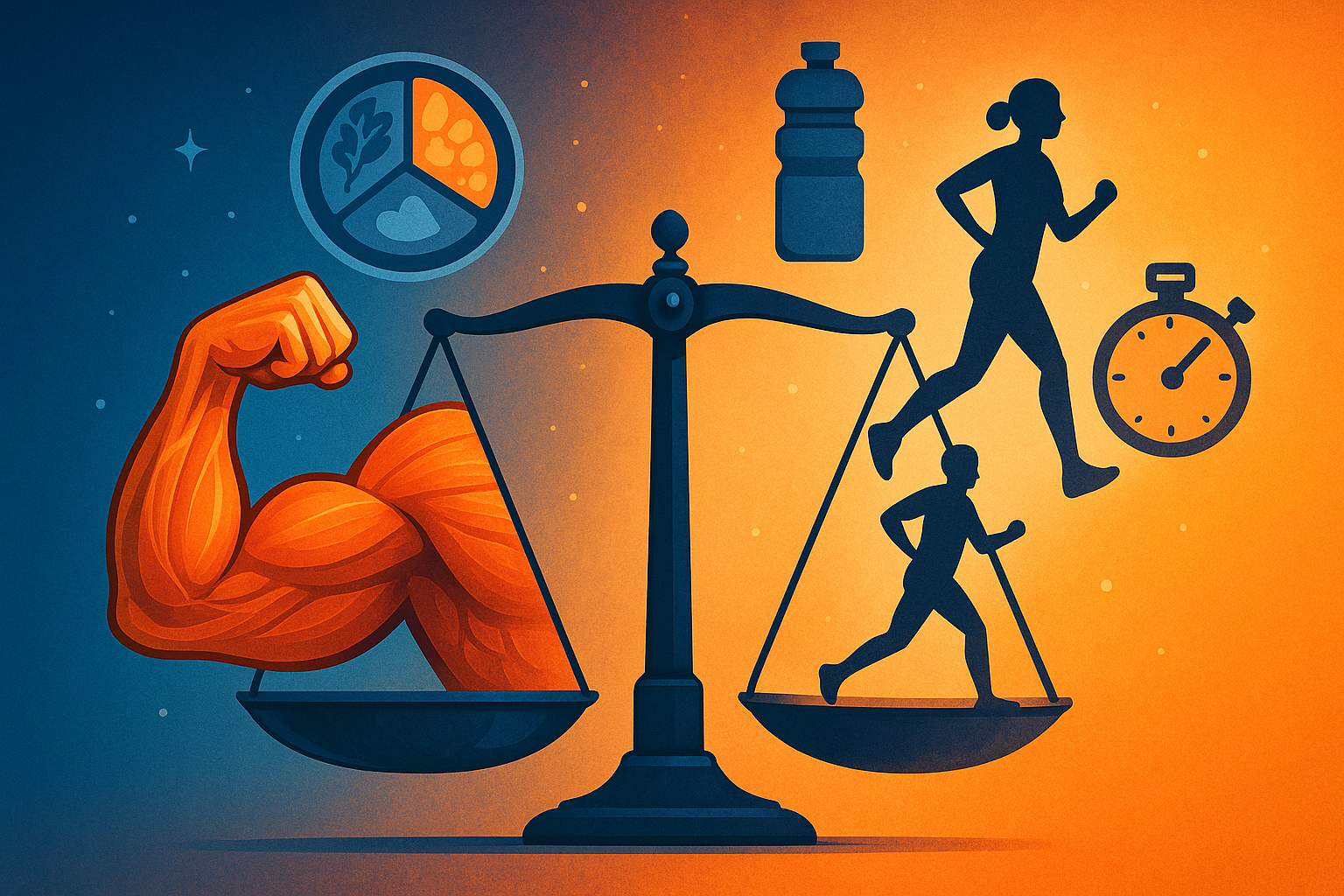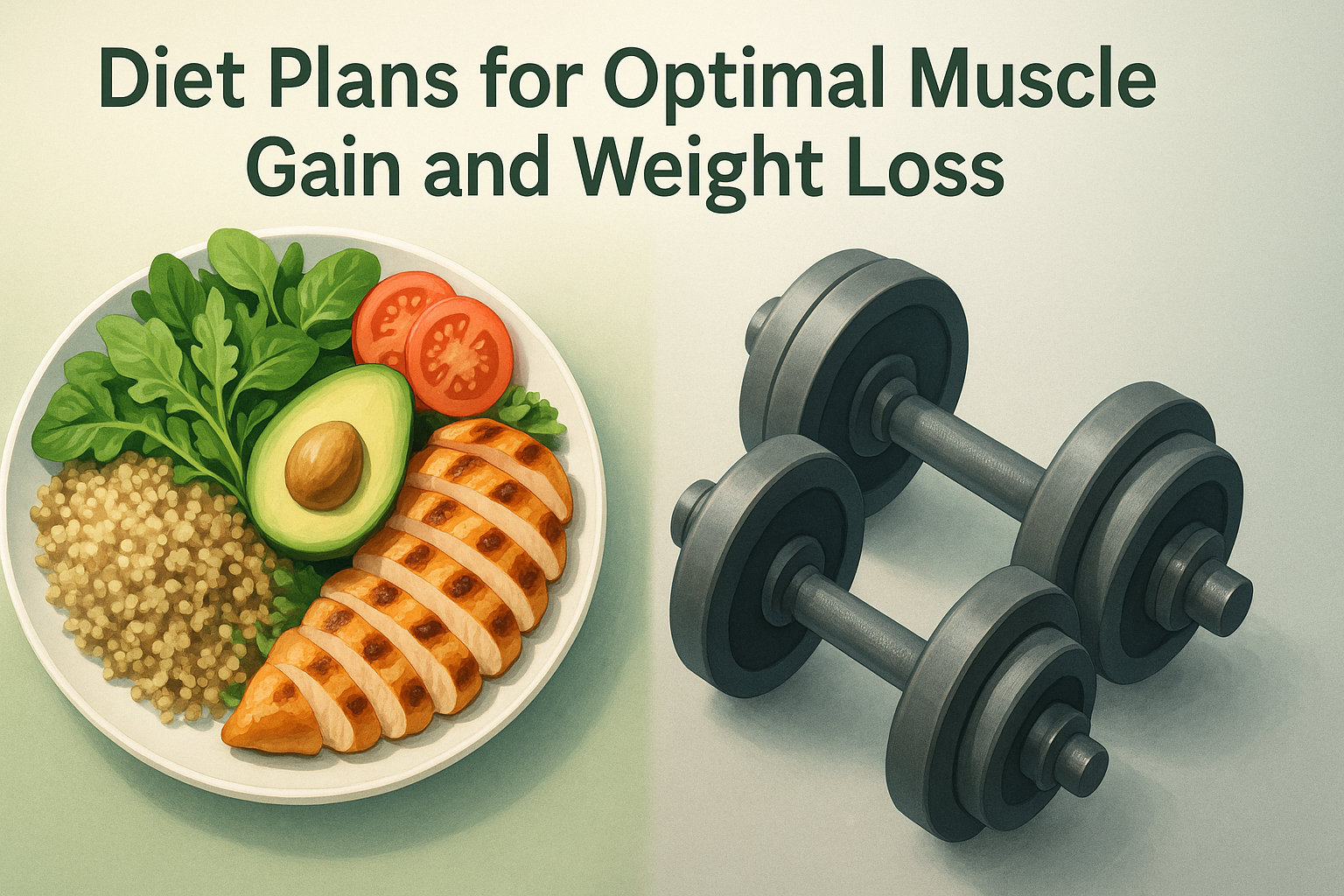Diet Plans for Optimal Muscle Gain and Weight Loss: Achieve Your Fitness Goals
Are you ready to transform your body by gaining muscle and shedding those extra pounds at the same time? 🏋️♂️✨ It might sound challenging, but with the right diet plan, you can reach your fitness goals more efficiently. In this blog post, we’ll explore diet strategies that maximize muscle gain while promoting weight loss. Let’s dive in!
Table of Contents
1. Introduction: Balancing Muscle Gain and Weight Loss
2. Understanding Your Caloric Needs
3. Macronutrients: The Building Blocks of Success
4. Timing Your Meals: When to Eat for Optimal Results
5. Hydration and Its Role in Fitness
6. Conclusion: Your Path to a Fitter You
7. FAQs

Introduction: Balancing Muscle Gain and Weight Loss
Achieving the perfect balance between muscle gain and weight loss can feel like walking a tightrope. The key is to create a diet plan that fuels your workouts, supports recovery, and enhances your metabolism. Let’s break down how you can do this effectively.
Understanding Your Caloric Needs
First things first, knowing your daily caloric needs is crucial. You want to create a slight calorie deficit to lose fat, but not so much that it hampers muscle growth. Use an online calculator to determine your Basal Metabolic Rate (BMR) and adjust based on your activity level. Remember, it’s all about finding the sweet spot! 🍎

Macronutrients: The Building Blocks of Success
When it comes to muscle gain and weight loss, not all calories are created equal. Pay attention to your macronutrient intake:
Proteins: The Muscle Builders 🥩
Protein is essential for muscle repair and growth. Aim for 1.2 to 2.0 grams of protein per kilogram of body weight. Incorporate lean meats, fish, eggs, beans, and nuts into your meals.
Carbohydrates: Your Energy Source 🍚
Carbs fuel your workouts and recovery. Opt for complex carbs like whole grains, fruits, and vegetables. Timing your carb intake around your workouts can further enhance performance and recovery.
Fats: Don’t Fear Them! 🥑
Healthy fats are vital for hormone production and overall health. Include sources like avocados, olive oil, and fatty fish. Keep your fat intake moderate to support your calorie goals.
Timing Your Meals: When to Eat for Optimal Results
Meal timing can significantly impact your fitness journey. Here are some tips:
Pre-Workout Nutrition: Have a balanced meal with carbs and protein about 2-3 hours before exercising.
Post-Workout Recovery: Consume a protein-rich snack or meal within 30-60 minutes after your workout to aid muscle recovery.
Frequent, Balanced Meals: Eating small, balanced meals every 3-4 hours can keep your metabolism active and energy levels stable.
Hydration and Its Role in Fitness
Never underestimate the power of hydration! Water plays a critical role in muscle function and recovery. Drink at least 8-10 glasses of water a day, and more if you’re active. 💧
Conclusion: Your Path to a Fitter You
Combining muscle gain and weight loss requires a strategic approach to your diet. By understanding your caloric needs, focusing on the right macronutrients, timing your meals, and staying hydrated, you’ll be well on your way to achieving your fitness goals. Remember, consistency is key, and small changes can lead to big results over time. Keep pushing forward! 💪
FAQs
Q1: Can I build muscle while losing weight?
A1: Yes, it is possible to build muscle while losing weight, especially if you’re new to strength training. Focus on a high-protein diet and consistent exercise.
Q2: How many meals should I eat per day?
A2: It’s not about the number of meals but their quality. Aim for 4-6 small, balanced meals throughout the day to keep your metabolism steady.
Q3: Should I avoid carbs completely to lose weight?
A3: No, carbohydrates are essential for energy. Focus on complex carbs and time them around your workouts for the best results.
Q4: What supplements should I consider for muscle gain?
A4: Protein powders, creatine, and branched-chain amino acids (BCAAs) can be beneficial, but always consult a healthcare professional before starting any supplement.
Q5: How long will it take to see results?
A5: Results vary based on individual factors, but with consistency in diet and exercise, you can start seeing changes in as little as 4-8 weeks.





